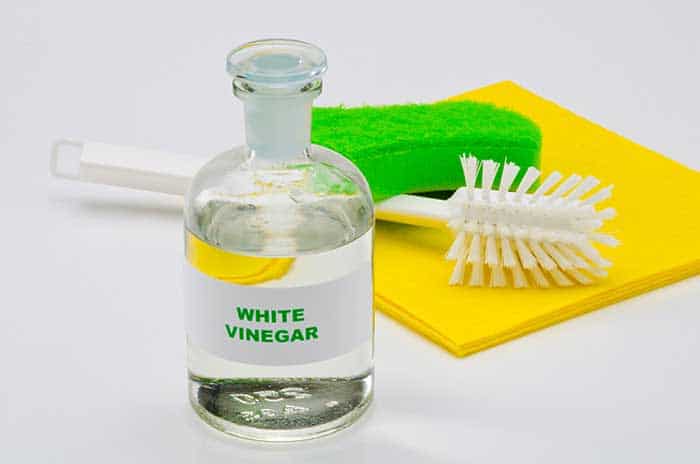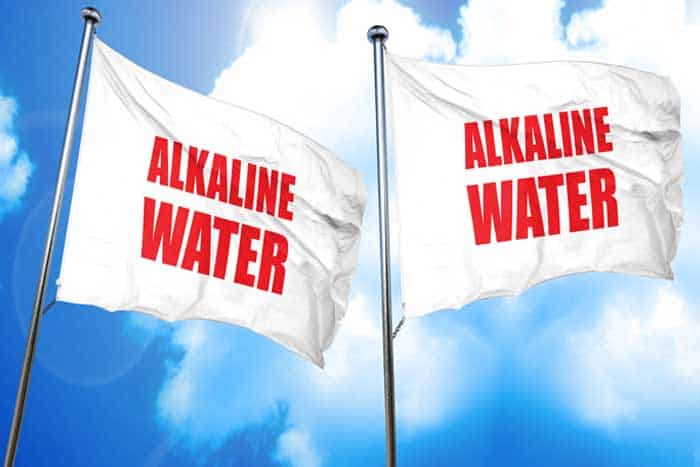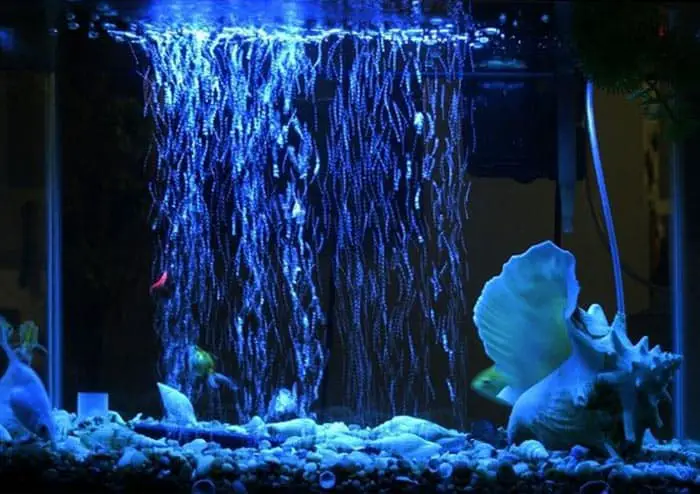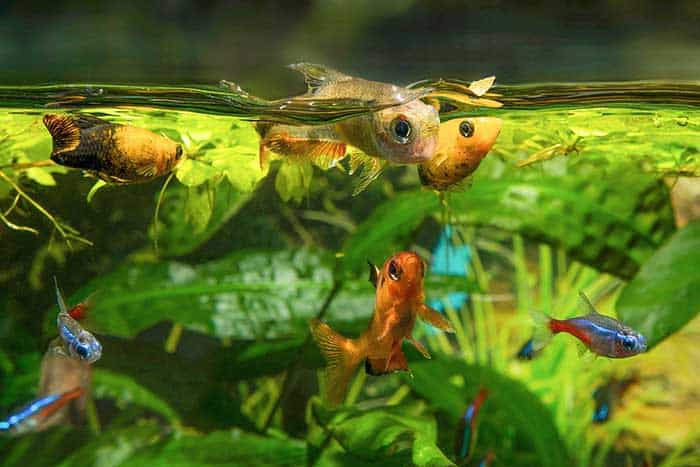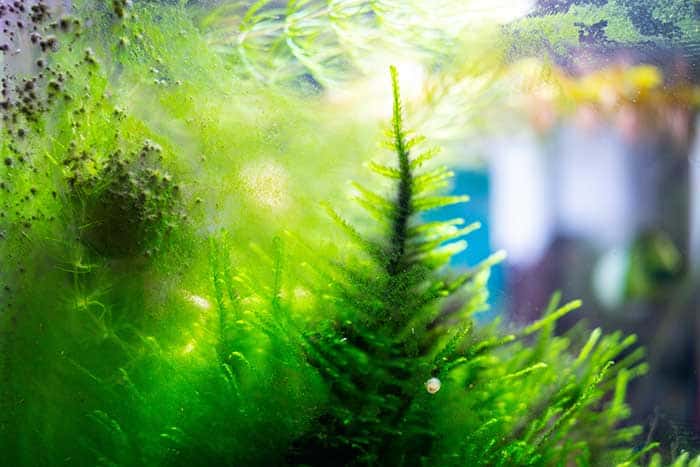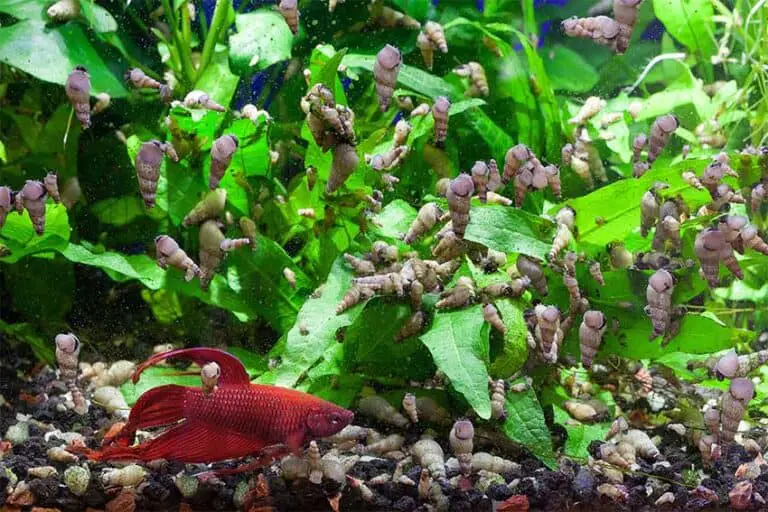Is Super Glue Safe For Aquariums (What you need to know)
Super glue is a strong, fast-drying adhesive used in many DIY projects, so it would seem like the perfect choice for sticking broken aquarium fixtures or even gluing plants when aquascaping. But is super glue safe for aquariums, or is it toxic to aquatic life?
Most types of superglue are safe to use in aquariums when dry and set. Gel glue is best, ideally used for aquascaping or repairs to ornaments rather than repairs to aquariums. Superglue won’t create a watertight seal like a silicone sealant but gives a strong and instant bond.
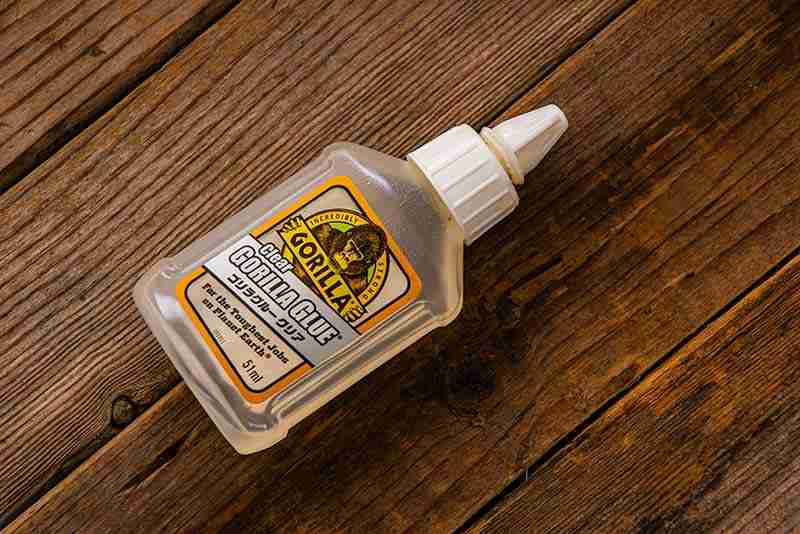
There are some important things to know before using super glue on your fish tank, which I will cover in this article. I will also answer the most common questions about using super glue in an aquarium, such as:
- Can you glue aquarium plants?
- What is the best glue for aquascaping?
- Is hot glue aquarium safe?
- What is the best glue for aquascaping?
This article answers the above questions and many more, helping you feel more confident using super glue in your aquarium.
Is Super Glue Safe For Aquariums?
Many chemicals should be kept away from aquariums due to their toxicity and risk of water contamination. Many aquarists don’t realize the chemicals contained in aerosols can settle on the water surface, causing toxic contamination with potentially disastrous effects.
There is no wonder that many people ask, is super glue safe for aquariums? It’s full of potentially harmful chemicals, isn’t it?
From my experience, copious amounts of research, and talking to other aquarists, I have established that most types of superglue are safe to use in aquariums. If each glue’s chemical formulation and active ingredients are relatively similar, they will react the same in water.
It is important to check the label for any warnings. Some manufacturers may specifically state that their products are unsafe for use in an aquarium. You also want to look for added chemicals like mold inhibitors, which are toxic to fish.
I have researched the main chemicals found in most superglues which I discuss in the next sections.
What Chemicals are in super glue?
Super glue contains many chemicals, such as cyanoacrylate esters, isobutyl cyanoacrylate, metal powders, and solvents. If you plan to use super glue in your aquarium or fish tank, it is best that the chemicals do not leach into the water.
First of all, there is a chemical called isobutyl-cyanoacrylate. Isobutyl is a skin, eye, and respiratory irritant that is harmful when ingested or exposed to the eyes.
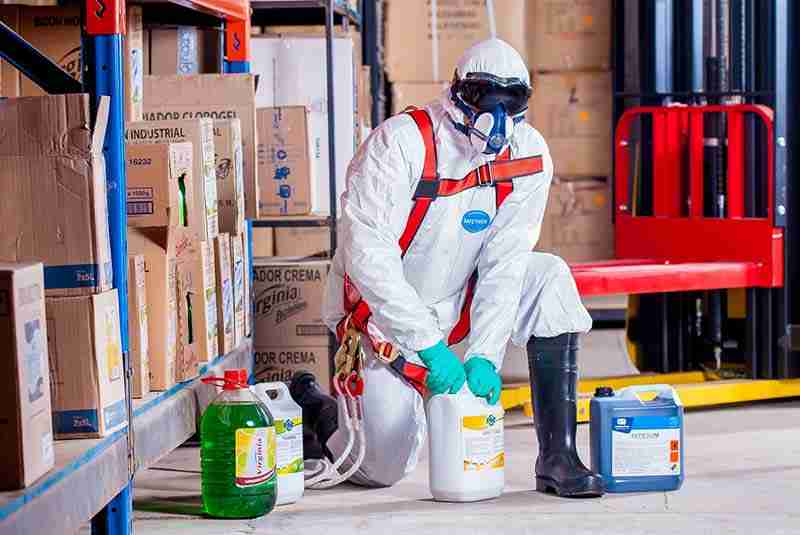
Inhalation is also bad for your fish, causing respiratory problems. Isobutyl-cyanoacrylate is not known to be carcinogenic (cancer-causing) or a reproductive toxin.
There are also cyanoacrylate esters, which are the main ingredients in all superglues and can cause severe skin irritation. This is not carcinogenic, nor is it known to be harmful to your fish, but this chemical could irritate them if they were to come into contact with their eyes.
There are many chemicals used in superglue, not all are necessary to list, but make sure you research the chemical composition of your glue before using it on an aquarium or tank.
Superglue is intended for use with plastics and glass only! Superglue will stick well to these materials because they have smooth surfaces. However, superglue will not bond as strongly to porous surfaces, such as wood, fabric, or ceramic.
Will Super Glue Hurt Fish?
So super glue has many chemicals that can be toxic to fish, but only in its raw form. The last thing you want is to have a toxic chemical enter your aquarium and hurt your fish.
It is important to note that these chemicals are not present in superglue when it dries, so the real question is, will superglue hurt fish when dried?
The answer is no! Once the water evaporates from super glue, nothing is left but tiny particles of dried glue strongly bonded together. These will not cause any harm to your fish, but it is still best that the superglue is kept away from them in case they were to ingest it by accident.
It can be difficult to use super glue underwater as it is not designed to be used like this. Contact with water will cause the glue to dry too fast. Contact with water speeds up the bonding and curing process dramatically.
Using the super glue outside of the tank is preferable, and once you have carried out the sticking, you can submerge the glued object in water to help it to cure more quickly.
If you need to do some gluing underwater, I suggest using larger amounts than are necessary, and you should have everything ready to move before you submerge the glue. You will only have a very short time (15-30 seconds) before the glue sets hard, so you will need a steady hand. Once you apply glue to the surface area, apply plenty of pressure and hold still until it sets.
When super glue dries, it becomes hard and doesn’t secrete harmful chemicals. Superglue should be solid throughout once dried, avoiding toxic chemicals leaching out if broken.
If you plan to use super glue for your fish tank repairs, then make sure you use a super glue gel, not the liquid form. Gel super glue is the easiest to use and appears to be the most aquarium-safe.
Is Gorilla Super Glue Aquarium Safe?
Gorilla Glue is a popular super glue brand advertised as the “toughest glue on earth.” The gorilla glue website claims their product is an aquarium-safe super glue that works well underwater.
Gorilla Glue is mainly made from isobutyl cyanoacrylate, like many other super glue brands, and it works in just the same way, so their claim that it’s safe to use in fish tanks makes perfect sense.
In recent years, many people have used gorilla glue to make underwater structures for their fish tanks. It is typical to read about the use of gorilla glue on several popular fishkeeping forums and websites with no issues reported.
Is Loctite Super Glue Aquarium Safe?
Loctite super glue is another popular brand that is useful for many quick home fixes, but is Loctite super glue safe for aquariums?
Loctite superglue is aquarium safe and used by many aquarists for reef repairs, gluing plant life to rocks or driftwood, and general tank repairs.
I have read many fishkeeping forums where people commonly ask, “Is Loctite super glue gel aquarium safe?” To be honest, Loctite’s gel and liquid forms are similar except in their consistency.
Loctite superglue, as with all cyanoacrylate, should be safe once cured. Over time, the ingredients can change in any consumer product, but at the time of writing, you should check that the glue contains isobutyl cyanoacrylate.
I prefer to use the gel forms of any super glue brand because it is easier to work with and creates less mess. Liquid super glue can seep into certain materials rendering it pretty useless, whereas a gel will sit in place.
Is Hot Glue Aquarium Safe?
Another frequently asked question is whether hot glue is aquarium safe. After doing some research, it’s evident that hot glue is safe for the aquarium. Hot glue comprises many chemical compounds, but the main component is ethyl cyanoacrylate, the same as super glue. Following the same guidance, this makes hot glue safe to use in aquariums.
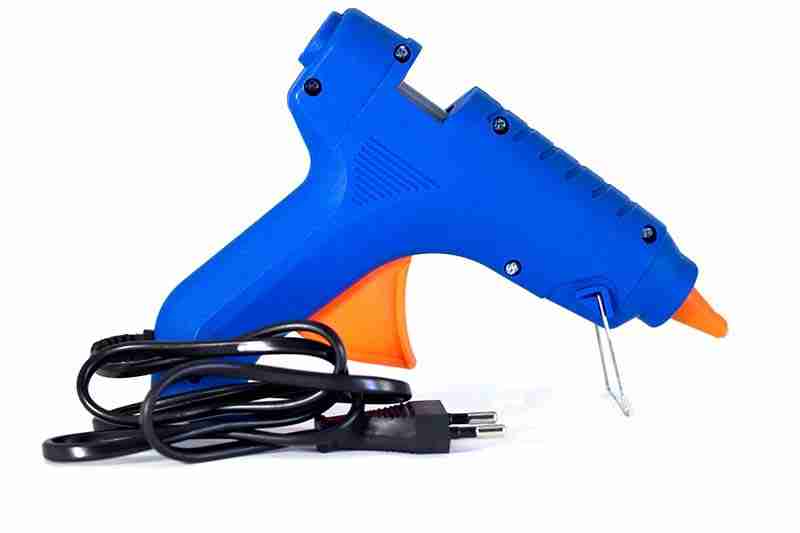
In addition, hot glue is a very low-viscosity adhesive and, in its raw form, is not harmful to aquatic life. In fact, it is so thin that if some were to drop into the aquarium, they would most likely evaporate before they had any chance of causing harm.
The best advice for any type of glue is to ensure your fish don’t have access to it whilst it is wet, and considering that the glues mentioned above will both dry very quickly, this should not become a problem.
What Super Glue Is Aquarium Safe?
I’ve used Gorilla Super glue gel on my own aquascaping and haven’t had any issues. Certain glues are specifically labeled as aquarium safe.
My Recommendations
Below is a list of both general-use super glues and specific aquarium-safe super glues:
Seachem Reef Glue (Find On Amazon) is a general aquarium-safe superglue that is especially suitable for fixing corals and other reef structures.
Cyanoacrylate (Find On Amazon) is an aquarium-safe superglue that can be used underwater to fix plants and hardscapes in your tank.
Gorilla Super Glue (Find On Amazon) is another aquarium-safe superglue suitable for both plants and hardscapes.
Loctite (Find On Amazon) is also an aquarium-safe superglue; even though it’s not specifically made for the job, it can be used to fix both live rock and corals in your reef tank. Make sure to use gel, not liquid.
Guoelephant Aquarium Glue (Find On Amazon) is excellent for bonding rock, coral, and plastics without harming your fish or plants.
You will find the most general super glues at your local hardware store and specific aquarium-safe glues online or at your local pet store.
Can I Use Any Superglue In An Aquarium?
Not all superglue is safe to use in an aquarium, especially those with specific uses such as carpentry. Some superglues contain toxic chemicals that may dissolve and contaminate aquarium water.
It’s difficult to cover every brand of glue on the market, instead, it’s best to compare chemicals and additives with brands I have already discussed as safe.
Whether you purchase your superglue online or in a hardware store, the compounds used are easily accessible, and warnings are clearly marked on the packaging.
My best advice is to avoid specialized superglues or lesser-known brands containing many more chemicals than the more popular ones.
Is Super Glue Good For Sealing Aquariums?
Although we have established that many types of super glue are safe to use in an aquarium, they do not give a watertight seal. They are better suited for aquarium repairs rather than making an entire tank watertight.
When super glue dries, it will form microscopic gaps that allow air to escape the tank and water to seep through. This is why you mustn’t use super glue if your aquarium leaks, as it will only worsen the problem over time by creating more holes in the sealant.
Aquarium Safe Silicone
The best way to deal with a leaky aquarium will always be aquarium-safe silicone products, which provide a watertight seal that is non-toxic to fish and other aquatic life. Using an aquarium-safe sealant is perfect for aquarium repairs.
Not only is it a good idea to use an aquarium-safe silicone that is non-toxic, but you should also make sure that your silicone is compatible with glass or acrylic when choosing what kind of glue is best for your particular situation. A general all-purpose non-toxic silicone will work but is not a perfect solution for all aquariums.
Choose a sealant like Marineland Aquarium Safe Sealant (Find On Amazon).
When Not To Use Super Glue In An Aquarium
Super glue is great for bonding certain surfaces, giving a rock-solid hold, but super glue is not good for all surfaces.
It is important to remember that you can’t use superglue on porous materials like rock or sand as it is easily absorbed and will damage your aquatic life over time. Superglue is also not the best choice for fixing holes in aquarium glass, instead, use an aquarium-safe silicone sealant for the task.
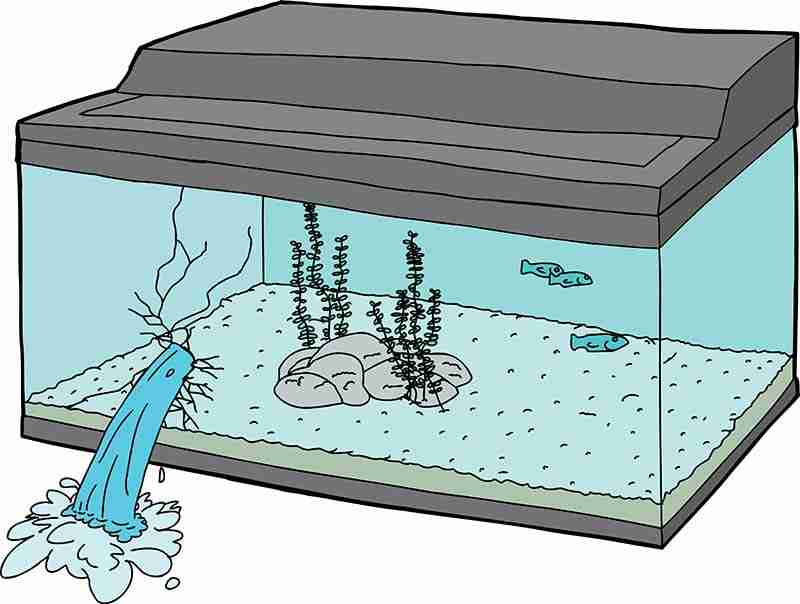
Superglue is also very inflexible when dry, so it is not a good idea to use super glue on surfaces that need to be moved or adjusted at some point. It is best used to stick down objects and leave them in place.
Below is a list of things that you shouldn’t use super glue for in an aquarium:
- Repairing leaks.
- Filling in holes.
- To make an aquarium watertight (use only as a temporary sealant).
- Waterproofing.
- Fixing cracks or fractures in the glass.
- Gluing moving parts. This is because superglue is inflexible when dry. It is best used for items that remain still that don’t need to be moved after they are glued down, especially because of the strong bond that s formed.
Best Use For Super Glue In Aquariums
The best use of super glue is for aquascaping. Many people use this glue to attach plants and hardscapes to their aquariums. It is also perfect for fixing any broken pieces of glass or acrylic, and it is a great option if your fish are not in any immediate danger from the breakage.
Below is a list of things you can use superglue for:
- Attaching coral fragments to your reef tank.
- Attaching aquarium plants, rocks, driftwood, and hardscape elements together for aquascaping.
- Reattaching pieces of broken glass or acrylic that aren’t an immediate danger to aquatic life.
- For small aquarium repairs, ensure you have something like silicone on hand for larger leaks.
- Super Glue is also good for quickly and easily repairing small broken pieces of aquarium equipment, such as pumps or tubing. Quick fixes are not long-term solutions, but they are perfect for emergencies, getting your tank back up and running quickly.
- Super glue is also good for gluing things down, like loose heater wires. This is a better option than silicone products as they are less likely to clog up the equipment or damage your fish with toxic residue.
Conclusion
I hope this post has been helpful and informative. Please remember that the information I provided has been researched based on manufacturer guidelines, information in forums and articles, speaking to other aquarists, and my experiences.
I have researched the use of superglue in marine and freshwater aquariums, comparing common super glue brands and aquarium-specific superglue.
Obviously, the safest option is to choose aquarium-safe glue, but it may not bond as strongly as the more common super glue.
Always ensure to read manufacturer guidelines carefully before using superglue in your aquarium so you avoid causing harm to yourself and your equipment.
I have used super glue several times myself, and from my own research, I am confident that super glue is safe for aquarium use providing no other chemicals such as mold inhibitors are present, and if you can use the glue outside of the tank, allowing it to dry before returning to the tank, even better.
Many people with reef tanks will use glue to remodel and attach new coral fragments. Even though underwater gluing is not the easiest, it is possible with some persistence. You can also make some pretty neat rock structures by gluing separate rocks together.
When you have finished gluing, always make sure there are no small particles of glue that your fish can swallow and digest, and you should be good to go.


